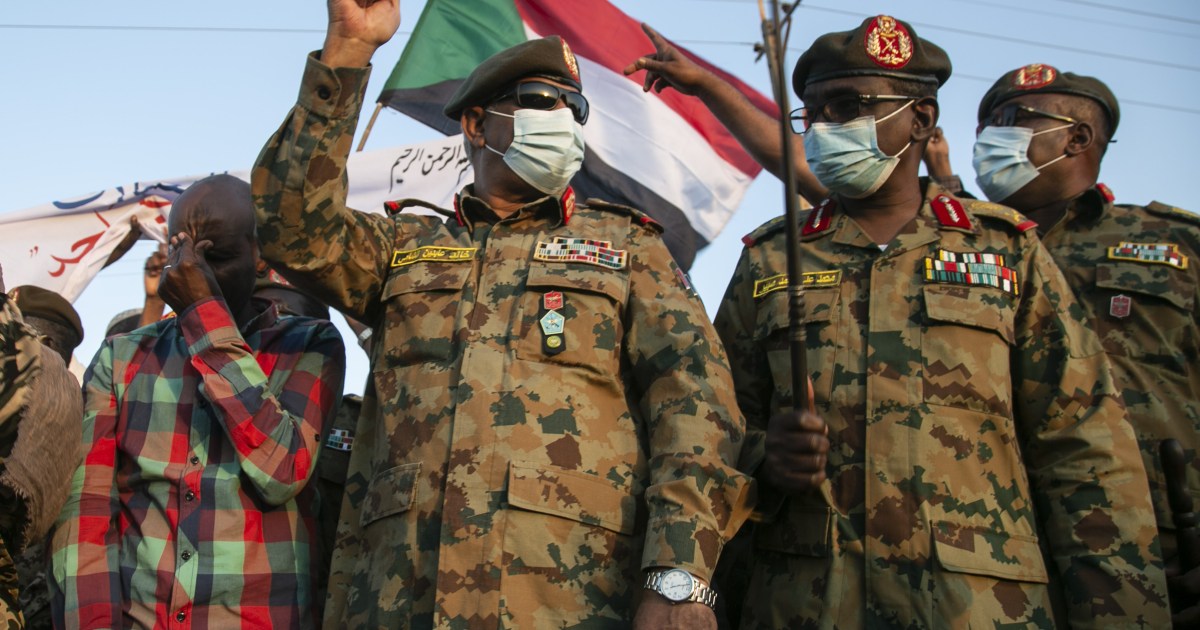Ethiopia accused Sudan of sending troops to its territory after announcing the restoration of all its lands on the border between the two countries, but Khartoum denied this, while cautious calm prevails in the region that witnessed battles for nearly two weeks.
In a press conference on Thursday in the capital Addis Ababa, the Ethiopian Foreign Ministry spokesman accused Dina, the Mufti of Sudan, of sending troops to Ethiopian territory.
He also accused the Mufti of a third country - he did not name it - of encouraging Sudan to move militarily on the common borders, saying that this country seeks to destabilize the region and occupy Sudanese lands.
According to Reuters, the Ethiopian spokesman was apparently referring to Egypt, which summoned the Ethiopian Chargé d'Affairs to the Ethiopian ambassador to seek clarification from Mufti's statements in which he linked Egypt's internal problems with tensions in the region.
In the same context, the Al-Jazeera correspondent in Amhara, the Ethiopian on the Sudanese border - reported that an official in the region - accused the Sudanese side of disavowing the understandings between the two countries that aim to find solutions to demarcate the disputed borders between them more than 100 years ago.
The Ethiopian official emphasized that the use of force would not solve the border dispute between the two countries.
Against the Ethiopian accusations, the head of the Sovereignty Council in Sudan, Abdel Fattah al-Burhan, said in a speech he gave yesterday evening on the occasion of Independence Day that his country's forces had not moved outside the borders of Sudan.
Al-Burhan added, "(Sudanese forces) did not and will not cross the international borders or attack neighboring Ethiopia," stressing that Sudan is still seeking to solve the issue of "violations by Ethiopian farmers" through dialogue.
And the Sudanese Foreign Minister Omar Qamar al-Din said at the time of the race that his country's forces had extended their control over the entire Sudanese territory at the border with Ethiopia.
He added that Addis Ababa had not formally objected to the border with Sudan, and that Khartoum had documents to prove its position.
Almost two weeks ago, the Sudanese army launched a military operation to reclaim lands that were inhabited by Ethiopians and where Ethiopian armed groups are deployed, but Khartoum confirmed that its forces encountered Ethiopian regular forces on the ground.
Cautious calm
and in the field, Al-Jazeera correspondent reported that the Ethiopian-Sudanese border is witnessing a cautious calm along the border strip with 4 Sudanese states.
Local sources said that the Sudanese bombing of the area caused the displacement of thousands of farmers and civilians from some areas in the Amhara region.
The Sudanese Minister of Foreign Affairs said yesterday that his country's forces have extended their control over all of Sudanese territory at the border with Ethiopia.
Gamaruddin added that Addis Ababa has not formally objected to the border with Sudan, and that Khartoum has documents that prove its position.
In this regard, he said, "The borders between the two countries are already drawn up, and what remains in the talks ... is an increase in the demarcation marks on the borders."
But statements by Ethiopian officials indicate that the dispute over the demarcation of the border remains.
The Sudanese army launched a military operation to regain its lands in the Al-Fashaqa area, after it was ambushed and killed and wounded in the middle of last month, and the ambush took place at a time when refugees were pouring in thousands of refugees from the Ethiopian Tigray region to escape the battles there.
The Ethiopian Prime Minister, Abiy Ahmed, played down the importance of the ambush, and spoke about the strength of "historical" relations with Sudan.
It is noteworthy that the region, which has been witnessing clashes for years, challenges the Tigray and Amhara regions of the Ethiopians.

